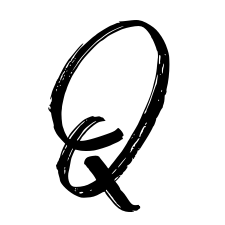
A gentle answer turns away wrath, but a harsh word stirs up anger. —Proverbs 15:1 NIV
I don’t like being criticized. I especially don’t like it when it seems to come out of left field and catches me by surprise when I was enjoying the ball game. Sadly, even if the criticism just might have some truth to it, my first response is often out of all proportion to the offense. I am a sinful human being, who quite selfishly wishes the world would always agree that I am right. [Sigh.] This is not a helpful way to think when receiving a critique. So, lately, I’ve come up with a three-part system for dealing with unexpected zingers. Just as our local emergency room starts us off in their triage section—assessing needs and giving basic care—this little TQT system helps me control myself and stops me from allowing my initial responses (defensiveness, rage, and self-pity to name just a few …) to make a bad situation worse. I hope this little system will be helpful to you as well, during those times when you receive a wound from a friend. Or an enemy, as the case may be. The first T in this first-response kit stands for the unlikely word … Thank. Yep. You heard me. If I am mature enough, I say it out loud and right away to the person who has just lobbed the criticism. Thank you. Full stop. This stops my runaway mouth from saying less noble things and gives my racing heart and brain a moment to process whatever just happened. So. Why thank you?
The first T in this first-response kit stands for the unlikely word … Thank. Yep. You heard me. If I am mature enough, I say it out loud and right away to the person who has just lobbed the criticism. Thank you. Full stop. This stops my runaway mouth from saying less noble things and gives my racing heart and brain a moment to process whatever just happened. So. Why thank you?
- It’s disarming. The Bible tells us that “a gentle answer turns away wrath, but a harsh word stirs up anger.” When we respond politely and without rancor, we defuse the situation and set a tone for graciousness instead of defensive anger.
- It helps us remember that God can use this surprise hurt for good in our lives. Perhaps we will learn more about the friend or foe by analyzing what they said, even if it was untrue. Perhaps we might discover that we need to make changes in our own behavior because (gulp) it was quite true. Perhaps we will be given an opportunity to gently show the accuser a better way to argue. In any case, it’s an opportunity to build up another human being and a chance to show love to someone who is not being particularly lovely. Loving an enemy is actually quite a Christian thing to do, after all.
 After the T for Thanks comes the Q, that stands for … Quiet. This might be a great time to recite our verse about gentle answers. We don’t have to solve the crisis that very second. We can quiet our desire to defend ourselves, to justify behavior, or to panic that the whole situation is beyond redemption. We can internally pray, asking God to quiet our hearts and our spirits. After that, we will be able to talk more softly and listen, not just to the words, but to the soul of the one speaking. Are they wounded themselves in some way? Is there something more going on than meets the eye? Have they exhibited great bravery in sharing this criticism, even if their method felt harsh? Perhaps they come from a background where they were severely criticized, and they don’t know how to speak gently. Quiet. Shhhh. Sit in the moment even if it’s hard and don’t stir it up.
After the T for Thanks comes the Q, that stands for … Quiet. This might be a great time to recite our verse about gentle answers. We don’t have to solve the crisis that very second. We can quiet our desire to defend ourselves, to justify behavior, or to panic that the whole situation is beyond redemption. We can internally pray, asking God to quiet our hearts and our spirits. After that, we will be able to talk more softly and listen, not just to the words, but to the soul of the one speaking. Are they wounded themselves in some way? Is there something more going on than meets the eye? Have they exhibited great bravery in sharing this criticism, even if their method felt harsh? Perhaps they come from a background where they were severely criticized, and they don’t know how to speak gently. Quiet. Shhhh. Sit in the moment even if it’s hard and don’t stir it up. Last of all for this triage is another T for … Trust. In the heat of the moment, especially if we feel betrayed and blindsided by someone’s unfavorable assessment of us or our behavior, we can give way to panic and anxiety, convinced that a relationship is ruined beyond repair. So, we remember the God we serve. The One who raises people from the dead. The One who turns fishermen into leaders of a church and shepherd boys into kings. The Redeemer. That Awesome One. Our hearts whisper, I trust You. “Make a way where there seems to be no way. As I try to deal with this hard thing, enable me to wait on You for resolution, Lord, even if it feels uncomfortable. Help me to trust You.”
Last of all for this triage is another T for … Trust. In the heat of the moment, especially if we feel betrayed and blindsided by someone’s unfavorable assessment of us or our behavior, we can give way to panic and anxiety, convinced that a relationship is ruined beyond repair. So, we remember the God we serve. The One who raises people from the dead. The One who turns fishermen into leaders of a church and shepherd boys into kings. The Redeemer. That Awesome One. Our hearts whisper, I trust You. “Make a way where there seems to be no way. As I try to deal with this hard thing, enable me to wait on You for resolution, Lord, even if it feels uncomfortable. Help me to trust You.”
After our TQT triage, we can ask for time to process what we’ve been told. We thank the person again for sharing, and then we take time to process it. Just like at that hometown emergency room after triage. We get to meet with the doctor on duty. We sometimes have to wait a long time for answers, but we are now past the initial assessment, and we’re with the expert. Now we can take time to pray and read the Word and ask the Lord, our Healer, what parts of what was said are true. We thank God for those parts, and thank Him that being humbled is actually a very good thing. We can take time to think through what parts of the criticism were based on misunderstanding—and go back to discuss when the heat of the moment has passed. We ask the Lord for the right diagnosis. We might ask for the advice of someone who knows the Healer well.
 There you have it. My little method for initial responses to criticism. I exercise this very imperfectly. I am learning as I go, but I have found that these three steps, right at the start, make all the difference in my heart attitude toward a fellow human being, who also needs tenderness—whether that is what they dished out or not. May God help us all to respond well to hard things and harsh words and bless even our enemies with that gentle, first answer.
There you have it. My little method for initial responses to criticism. I exercise this very imperfectly. I am learning as I go, but I have found that these three steps, right at the start, make all the difference in my heart attitude toward a fellow human being, who also needs tenderness—whether that is what they dished out or not. May God help us all to respond well to hard things and harsh words and bless even our enemies with that gentle, first answer.
Lord Jesus, when I think of how calm and quiet You were at the trials before Your crucifixion, I feel encouraged to be more like You. You never lost Your dignity; You never wounded someone unduly; and You maintained Your peace throughout. Oh, Lord, I want to be more like You! And not allow the damage of others to push me toward making it all worse. Please help me to quiet my heart before You and learn from criticism. In Your Name, Amen

You are loved,
Sharon
Sweet Selah Ministries
Vision
To inspire a movement away from the belief that “busy is better”
and toward the truth of God’s Word that stillness and knowing
Him matter most—and will be reflected in more effective work and service
Mission
To offer biblical resources and retreats that help women pause (Selah)
and love God more deeply as they know Him more intimately (Sweet)
Donate
If you’ve been blessed, keep the blessing going!
Click over to our Donation page … and thanks.
Share it. Pin it.



